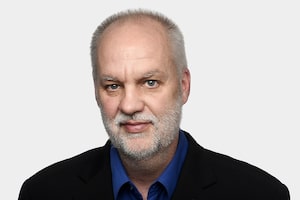The sun has set on Ontario’s COVID-19 Science Advisory Table.
Depending on who you believe, the independent panel – which consists of a group of scientific experts who have been offering advice on how to navigate the pandemic – will: A) be dissolved on Sept. 6, or b) given a permanent home within Public Health Ontario.
Regardless of which of these versions is true, this a blow for good science communication, and a victory for bureaucracy, political spin, and the let’s-pretend-COVID-is-over mindset.
The COVID-19 information Ontarians will get after Labour Day is going to be more fettered and less reliable.
The undermining of scientific independence via the enfeebling of the science table will not be good for the public’s health – and at a crucial time, when a seventh wave of unknown ferocity is poised to hit the province in the fall.
So why is this happening?
The advisory table was created in July, 2020, when Ontario (and Canada, and the world) was just starting to catch its breath after the first wave of the novel coronavirus. The ad hoc group took shape under the auspices of the Dalla Lana School of Public Health at the University of Toronto, and gathered leading experts in a variety of fields related to COVID-19, including epidemiology, vaccination and infectious diseases.
Public health experts took the initiative because the provincial government was doing little to mitigate the effects of the pandemic, and the institution that should have undertaken this work, Public Health Ontario (PHO), was doing even less.
In the summer of 2020, the political line was that COVID-19 was pretty well over. PHO, for its part, did one high-profile and disastrous COVID-19 briefing in April, 2020, and shortly afterward its president and CEO, Dr. Peter Donnelly, went on medical leave.
The Science Advisory Table, a loose collection of a few dozen volunteers (all of them unpaid, but most on the payroll of an academic or health institution), gave itself a mandate that emphasized independent thinking and transparency: It vowed to identify and study any scientific question that its members felt would help Ontario fight COVID-19, to pursue those investigations wherever they led, and to communicate openly and publicly about the results of these investigations.
The table stuck to those principles, even though their advice wasn’t always what the government and public wanted to hear.
But they were heard, and seen to be more credible than the official government spokespeople, including Premier Doug Ford and Ontario’s Chief Medical Officer of Health, Dr. Kieran Moore.
Dr. Peter Juni, the soft-spoken Swiss epidemiologist who chaired the science table, became the face of the COVID-19 pandemic response in the province. Problem was, Mr. Ford and his government didn’t really like most of the advice they were getting. They preferred Dr. Moore’s more silent compliance.
What the Premier liked even less was being called out publicly. Dr. Fahad Razak (who became the panel’s chair after Dr. Juni accepted a job at Oxford University) and a number of colleagues did just that in a Globe and Mail opinion piece, published earlier this month, that called on governments across Canada to take COVID-19 more seriously.
Not coincidentally, within 48 hours the science table says it received a letter from Public Health Ontario saying, essentially “thanks for your service, now get lost.” The move is also, in part, some flexing of muscle by the new PHO president and CEO, Michael Sherar.
Public Health Ontario, which was created because of the province’s muddled response to SARS, has been as ineffective as it has been invisible during COVID-19. With a $165-million budget, it’s well past time it started doing something.
What it shouldn’t be doing, however, is the bidding of the government.
The two massive reports that were produced about the SARS debacle – the Naylor report and the Campbell report – both stressed the need for independent public health bodies with the power to speak freely and do what’s needed during a public health crisis, no matter how unwelcome their assessments are with government or public.
PHO has promised to create a new, streamlined advisory committee. It has been less committal about maintaining the science table’s excellent COVID-19 information dashboard (Ontario has better pandemic data than any other province).
This is not a time for more secrecy and denial. Nor is it a time to be silencing scientists.
This is ultimately a test for Public Health Ontario. Can it finally take charge of the province’s pandemic response? And more importantly, can it stand up to its political masters and act in the public interest?
If not, it has no reason to exist.
Keep your Opinions sharp and informed. Get the Opinion newsletter. Sign up today.
 André Picard
André Picard